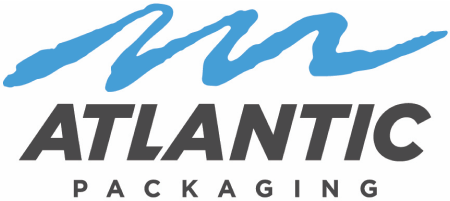Atlantic’s Recycling Equipment and PCR
Atlantic has invested in recycling equipment to:
- Recapture used stretch film from our customers
- Transform used stretch film into high-quality post-consumer resin (PCR)
- Repurpose that PCR into new stretch film!
This creates a closed-loop system that keeps waste out of landfills and the environment. Atlantic will turn upwards of 10 million pounds of stretch film into high-quality resin!
See how we’re doing this with Coca-Cola Consolidated
Why is Stretch Film Necessary?
Stretch film is essential to B2B packaging. It allows manufacturers to get their products to retailers and distribution centers efficiently and without damage.
Loads of products that are improperly stretch wrapped before transportation often end up destroyed and unusable. Without stretch film people wouldn’t be able to get the products they need, and there’s nothing more unsustainable than wasting resources on products that cannot be used!
Atlantic works with its customers to make their stretch wrapping operations as efficient, inexpensive, and sustainable as possible. Our MUST Stretch Film Monitoring System and Quality Control Team ensure that stretch wrapping operations are optimally standardized and film application is consistent!
Atlantic’s PCR Testing
Atlantic is at the forefront of innovation in the packaging industry and is taking a scientific, data-driven approach to understanding PCR. Atlantic’s MUST monitors provide virtually instant feedback from our customers on film quality and performance. This feedback allows us to adjust our recycling filtration system as well as the total percentage of PCR that is input in the stretch film as it is extruded.
Atlantic tracks:
- Stretch film breakage
- The lot of film a break occurs on
- PCR percentage in film
- How PCR film reacts to a variety of tests
These metrics allow Atlantic to produce the highest quality stretch film for its customers.
Dealing With Film Impurities
Stretch film is generally clear and free of impurities making it great for reuse. However, Atlantic has discovered that paper labels on stretch film harm the quality of PCR during the recycling process.
We encourage customers to use polymer-based labels to preserve the quality of PCR during its production. Polypropylene labels are slightly more expensive than paper labels, but the value from quality PCR production that excludes paper labels offsets the cost of paper-tainted PCR.
Quality is Key
Atlantic will never sacrifice the quality of its stretch film when replacing virgin plastic with PCR because product damage is completely unsustainable. Damaged products cannot be sold and waste money, resources, and carbon.
Helping our Partners Meet Their Sustainability Goals
Reducing product damage is crucial to meeting sustainability goals. Atlantic has a commitment to minimizing damage and costs associated with stretch wrapping loads of products.
Information about PCR will be collected every step of the way in the closed-loop system:
- From resin pellet production
- To customer use of stretch film
- To recapture of used materials
Atlantic is an industry leader in stretch film, so it is important that we take a scientific approach to studying PCR usage.
Atlantic Says No to Greenwashing
The goal of our recycling program is to reduce virgin plastic consumption not just add PCR to our films. Our success will be measured by getting as close as possible to achieving a ratio of one pound of PCR reducing one pound of virgin plastic. Many companies add PCR to their products for acclaim and marketing, but this is almost always in addition to not in lieu of virgin material. Atlantic is the exception.
Shoutout to our Partners
A major driver of this program is Atlantic’s partners’ commitment to sustainability. Atlantic can retrieve used stretch film from its customers so it can be recycled and reused.
Our partners have a vested interest in sustainability and the quality of stretch wrap they are provided with. This recycling initiative will allow clients to meet their key sustainability goals of reducing carbon emissions, plastic generation, and nonrecyclable material usage. Atlantic is excited to assist its customers in meeting their sustainability goals ahead of extended producer responsibility (EPR) legislation.
